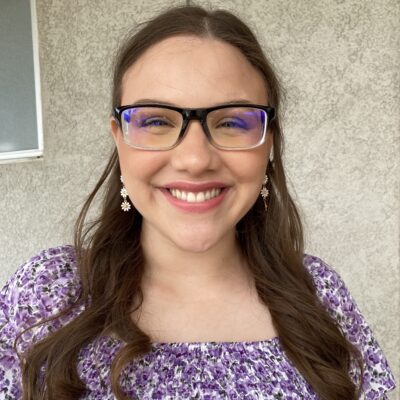Student Spotlight: Mayleen Cortez-Rodriguez

July 15, 2024
Mayleen Cortez-Rodriguez is a doctoral candidate in applied mathematics from southern California. She earned her bachelor’s degree from California State University, Channel Islands, and now studies causal inference with a focus on experiment design and methodology under the guidance of Christina Lee Yu at Cornell.
What is your area of research and why is it important?
I work in causal inference, a field dedicated to understanding cause-and-effect relationships. This field is important because people across many different domains, from agriculture, to health, to public policy and economics, care about understanding the causal effects of different types of interventions. To do this, we first must collect data and then conduct a causal analysis. In my own work, I focus on design of experiments (how to design an experiment to collect useful data) and methodology (how we use the data to estimate a causal effect).
What are the larger implications of this research?
Does smoking cause cancer? Does a particular vaccine can improve health outcomes? Does treatment A versus treatment B cure a disease? Does higher education result in better financial outcomes? These are all causal questions. To answer them, we have the field of causal inference! Being able to distinguish between mere correlation and causation is important, because many big decisions that affect the lives and livelihoods of thousands or millions of people are made based on our understanding of causal (or non-causal) relationships.
What lessons did you take away from participating in the Colman Inclusive Leadership Program and how will they benefit you going forward?
For me, a really impactful exercise was verbalizing what inclusion and belonging looks like, feels like, and sounds like. I have often found myself in situations where I didn’t feel like I belonged, but I have also been in spaces where I felt a strong sense of belonging. However, until the Colman Leadership Program, I never put much thought and reflection into why I felt belonging (or lack thereof) in these different spaces. I now have better language to express inclusion and belonging, which will help me communicate my own needs but also help me better understand the needs of others. Good communication is vital to good leadership, so I’m excited to build my communication skills through the lessons I learned in the program.
Why do you believe it is important to develop leadership skills?
For better or for worse, anyone can find themselves in a position of leadership. Developing leadership skills prepares you for the “better.” Leadership is not an easy task. There are so many different skills involved and at the end of the day, a leader is a human being with flaws leading other human beings with flaws. In all areas where I’m a leader, from my program, to my church, to my work, I want to be prepared to put forth my best. It won’t always be perfect, but it will always come with the promise that I’m continuing to develop critical skills to be a better leader. There’s always room to grow and there’s always something to learn.
What are your hobbies or interests outside of your research or scholarship?
I love to sing (mainly pop and musical theatre)! I also love watching TV shows, going out to the movie theater, and listening to science fiction audiobooks. I’m also pretty involved in a local church in Ithaca and am an organizer for the Cornell Grad Student Union.
Why did you choose Cornell to pursue your degree?
When I got to visit the applied math program in-person, I was blown away by how friendly all the applied math students were. I felt welcomed and included due to how the students engaged with me. Community and building community are super important to the applied math students and it showed. Since this was important to me, it was one of the top influences in my decision to choose Cornell.
